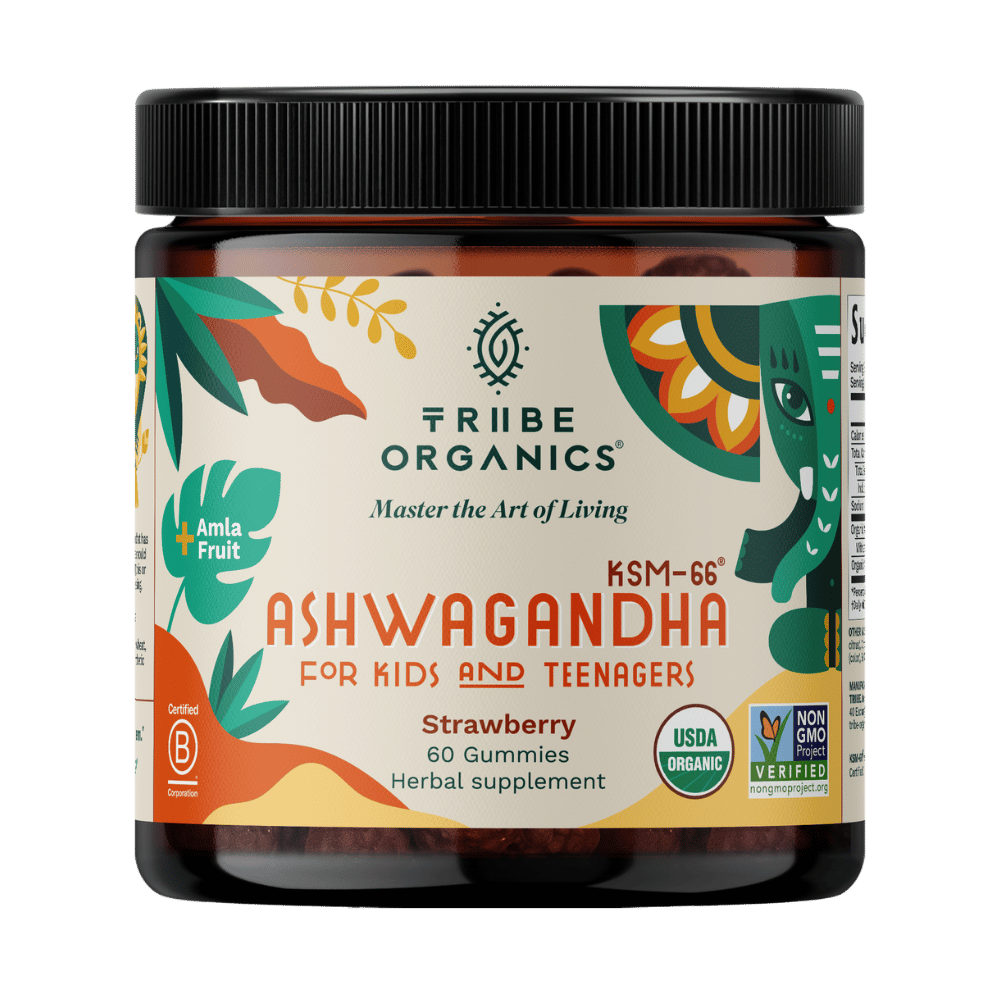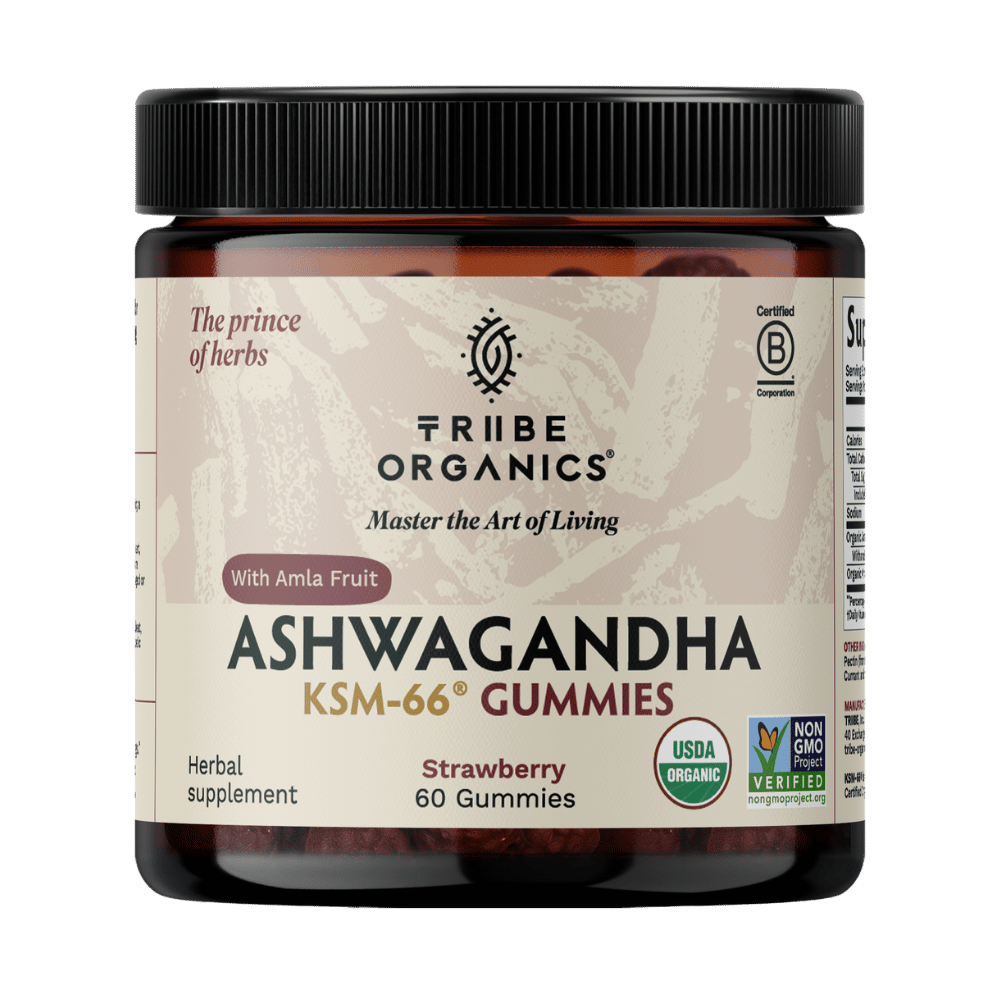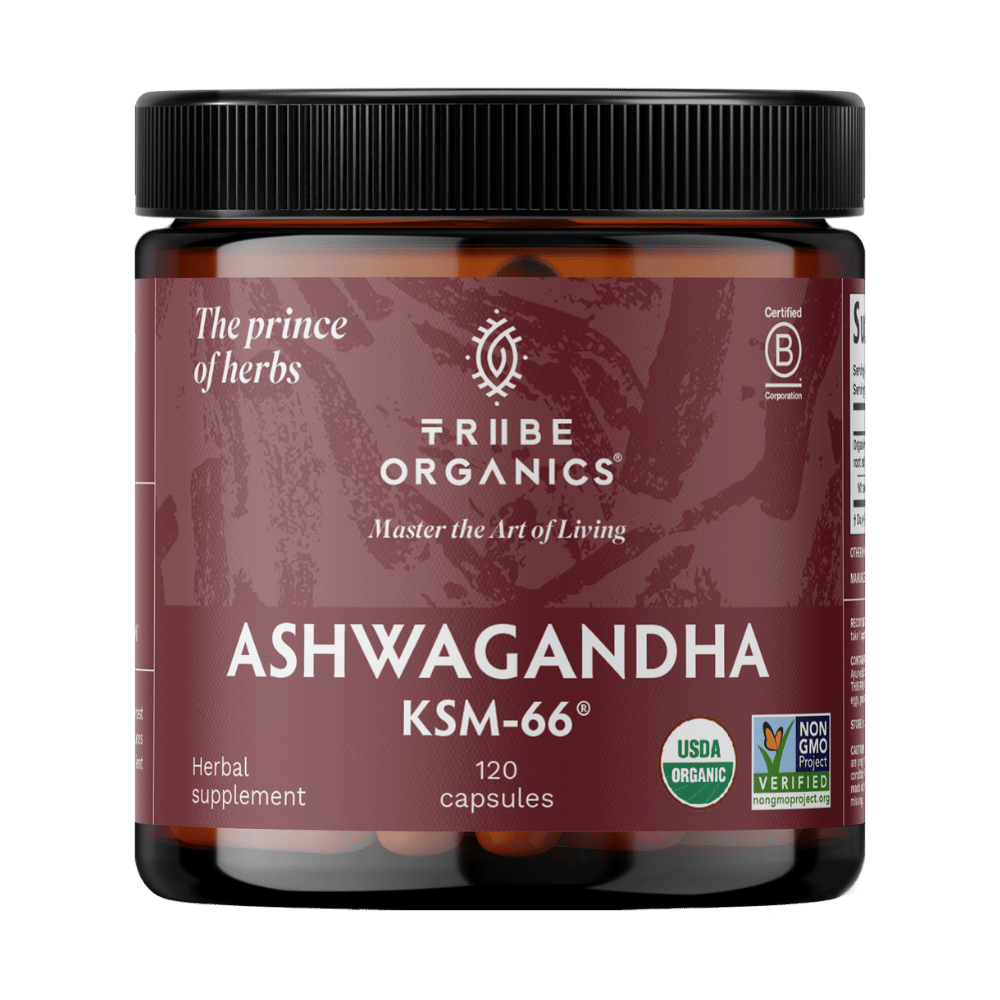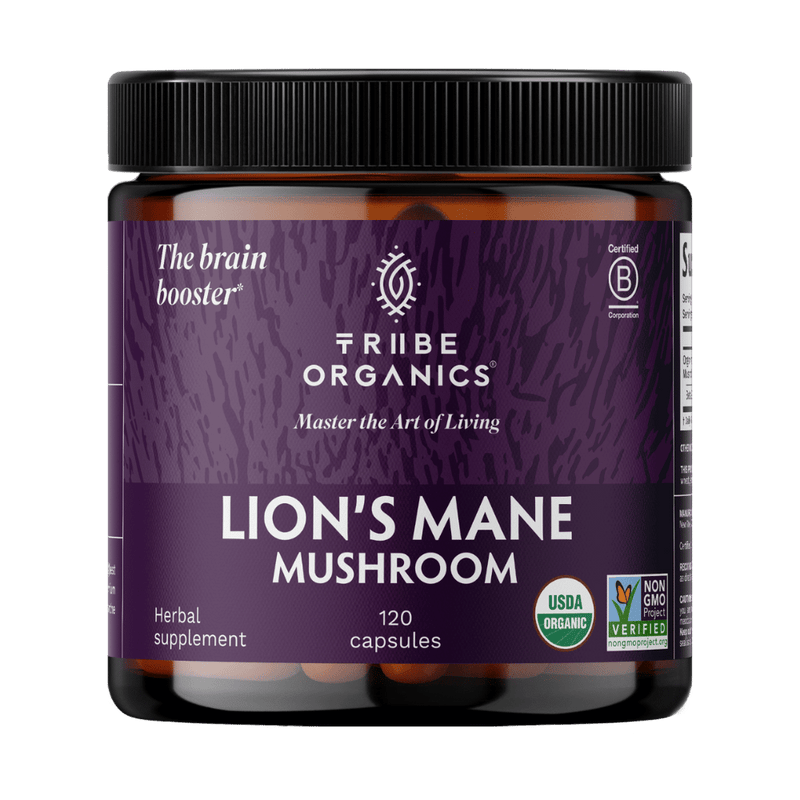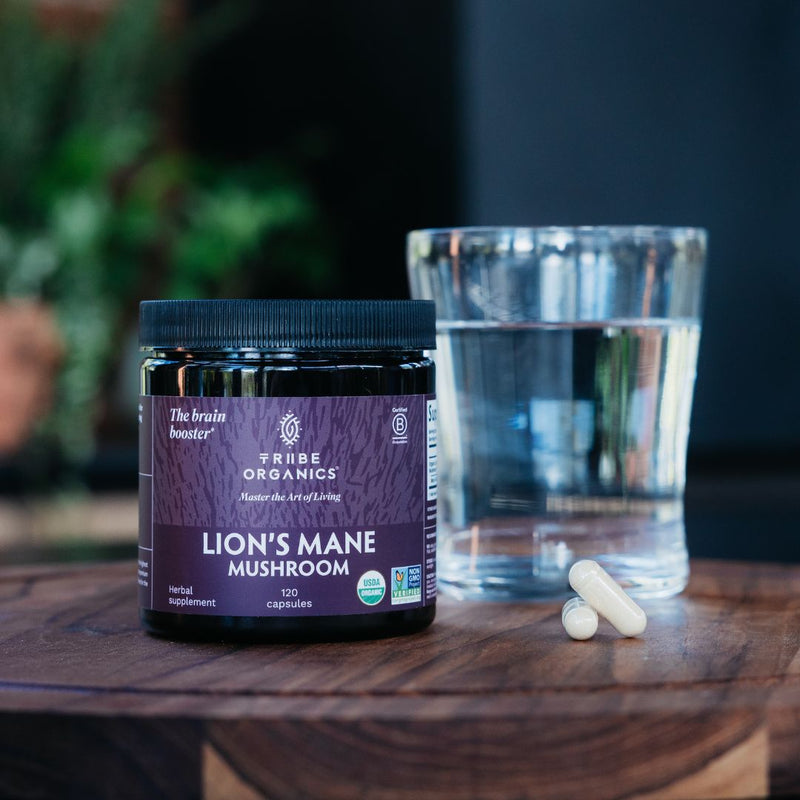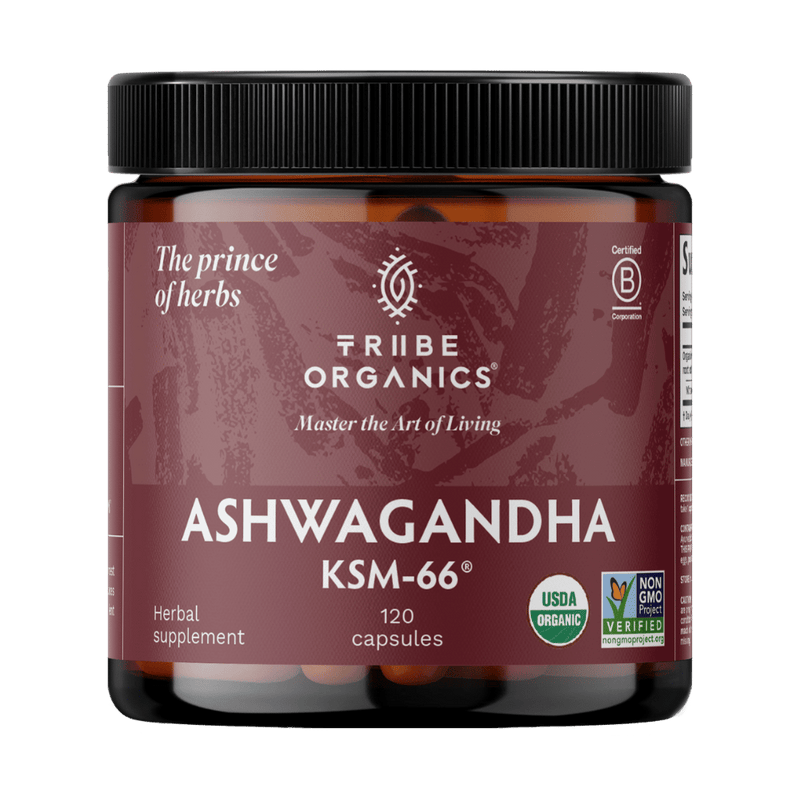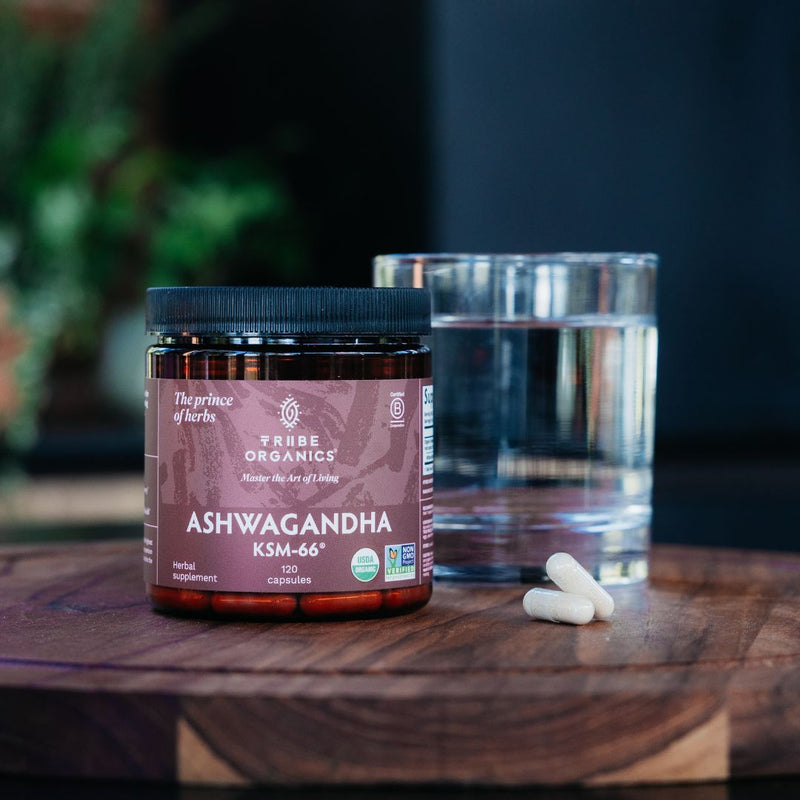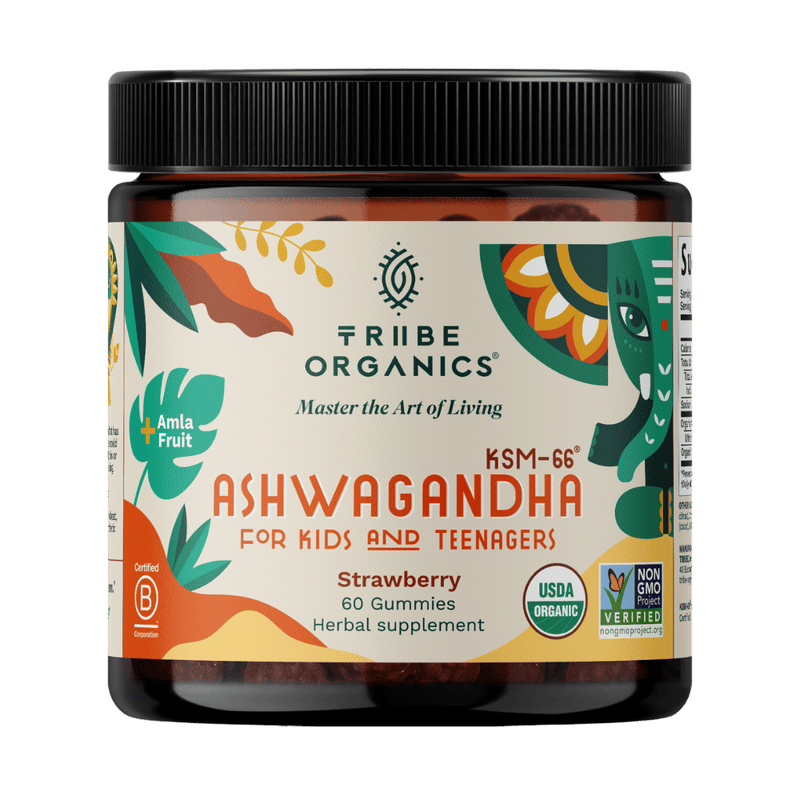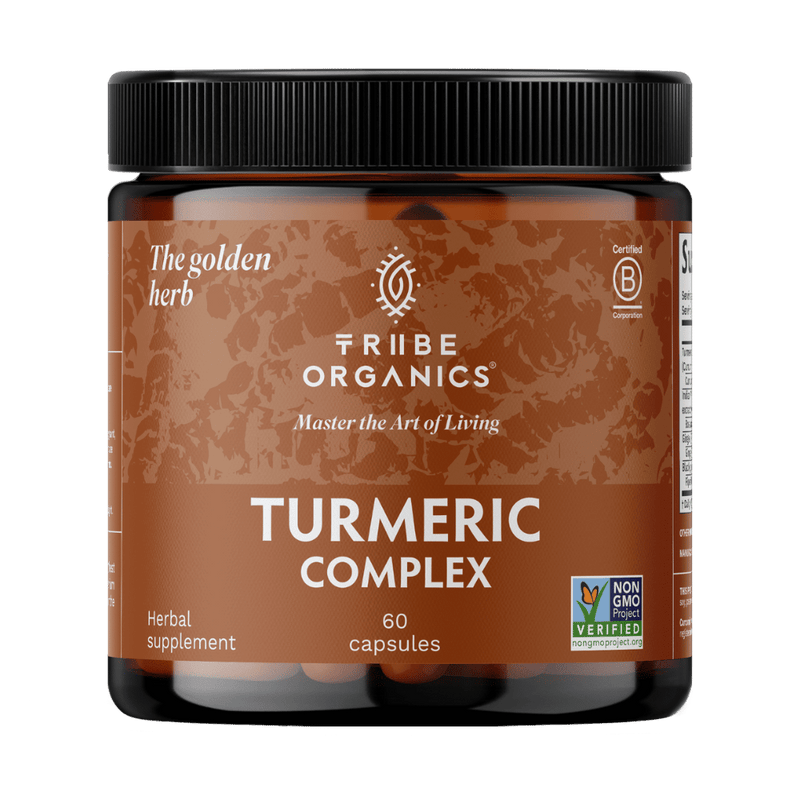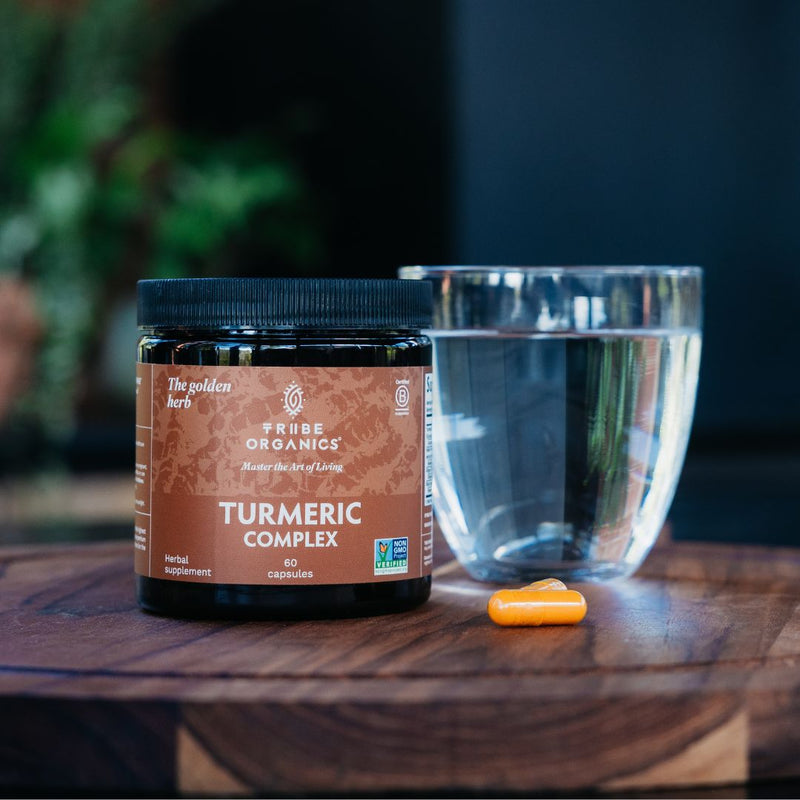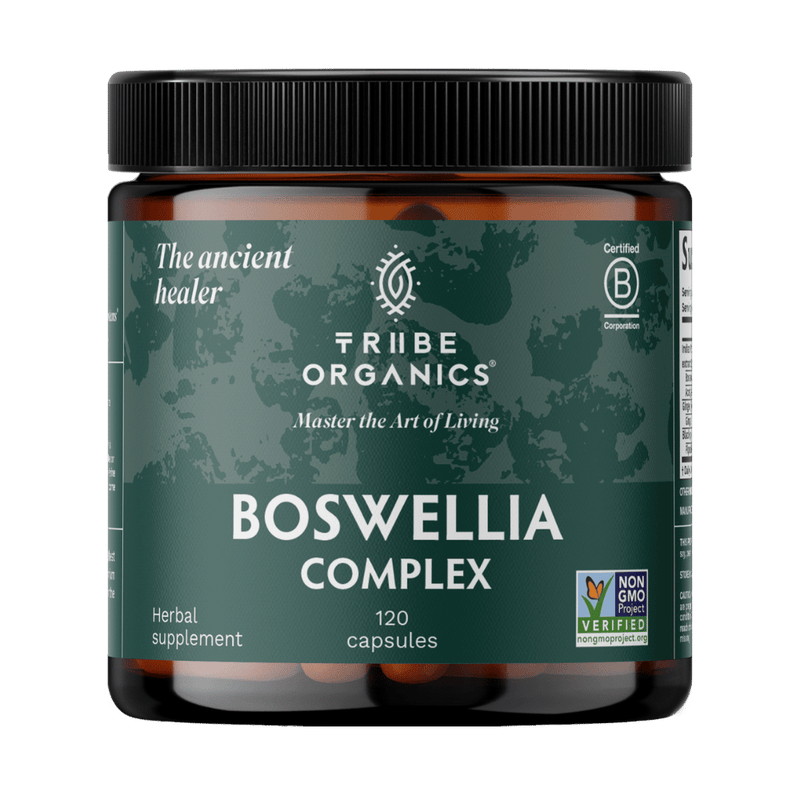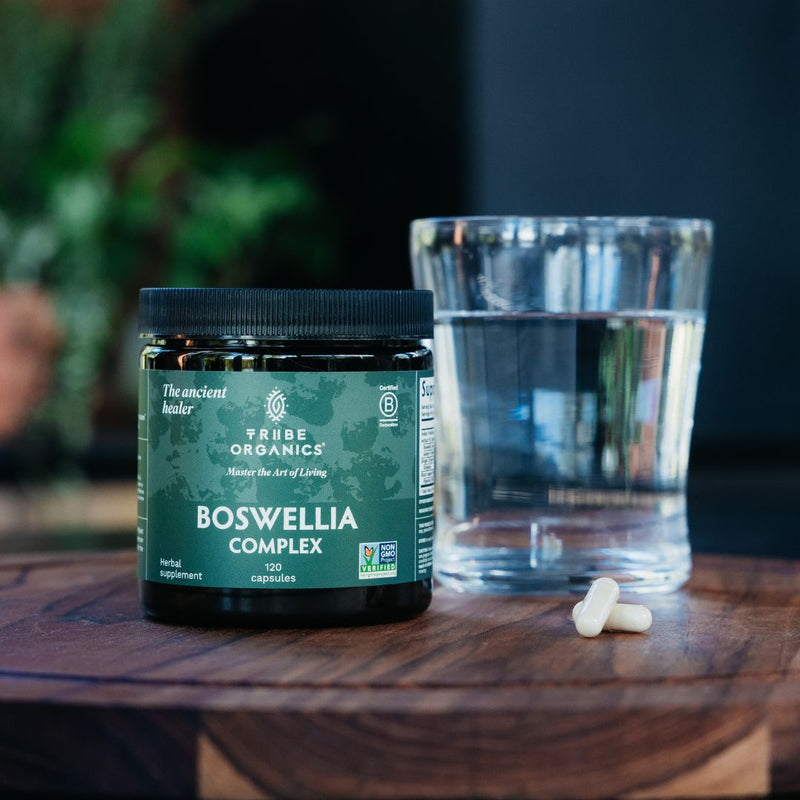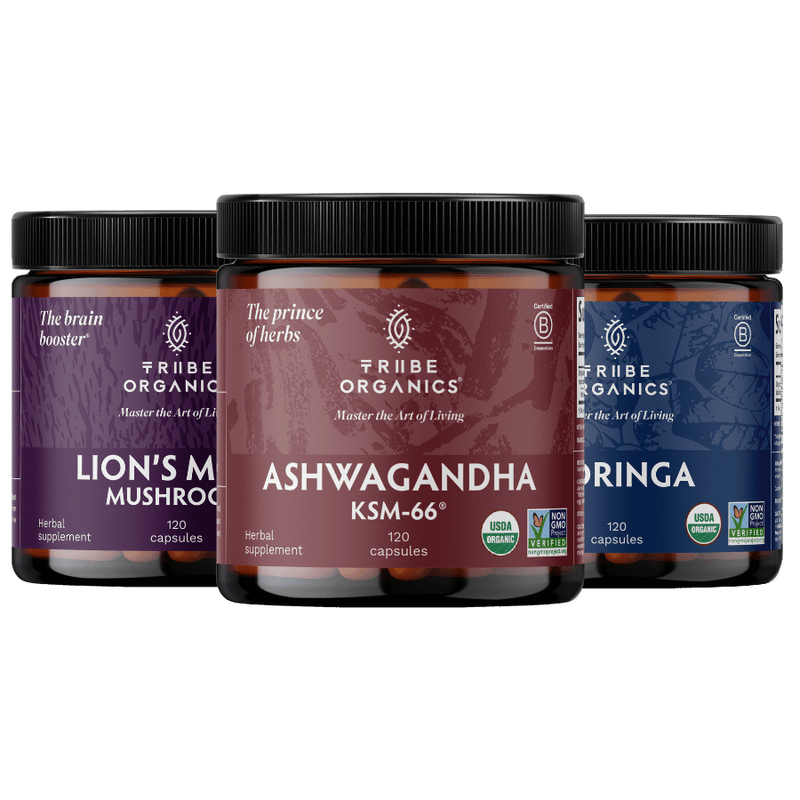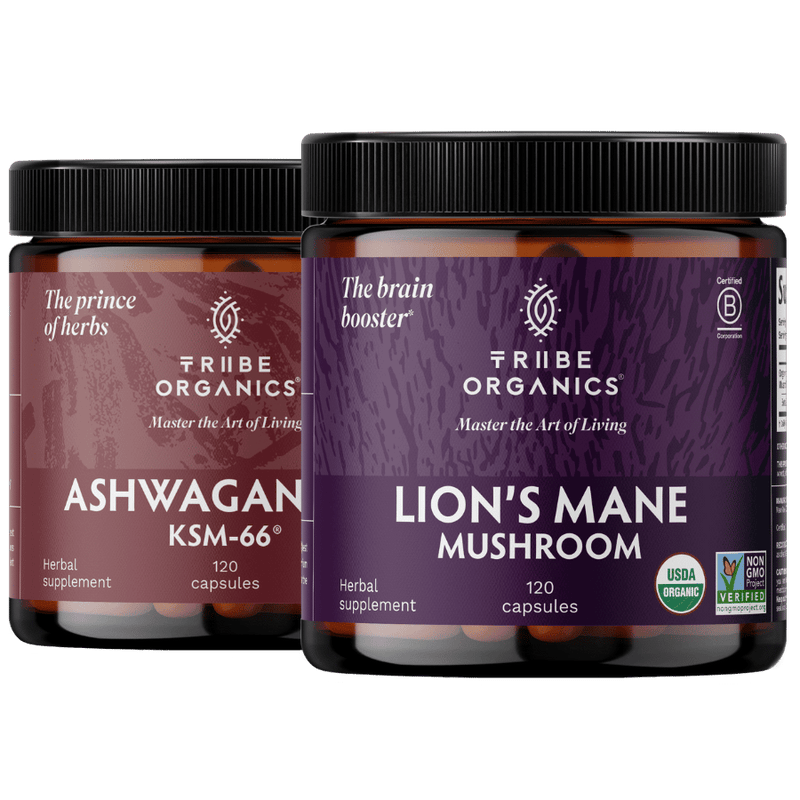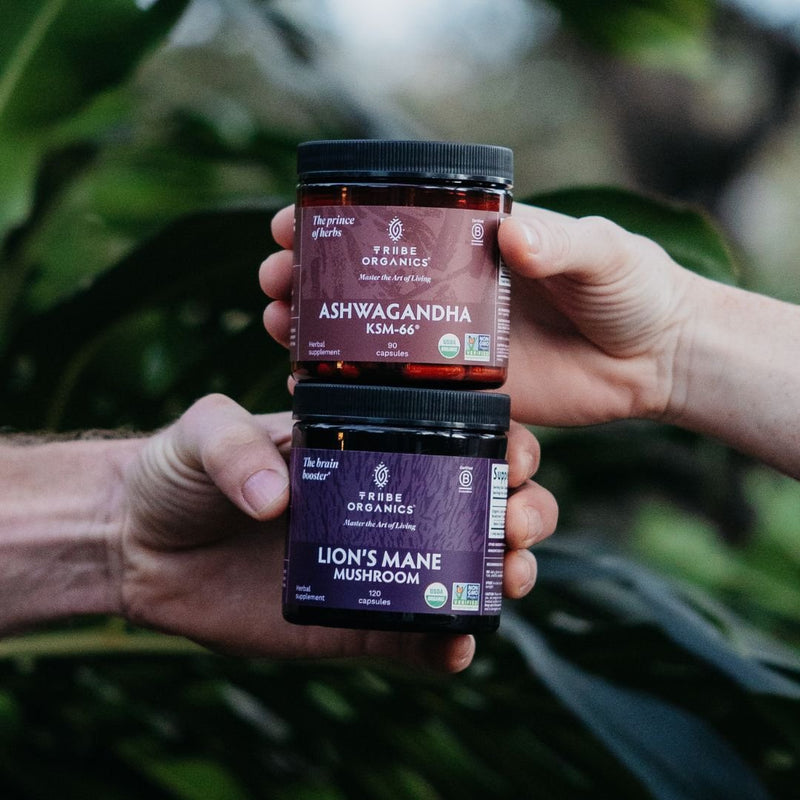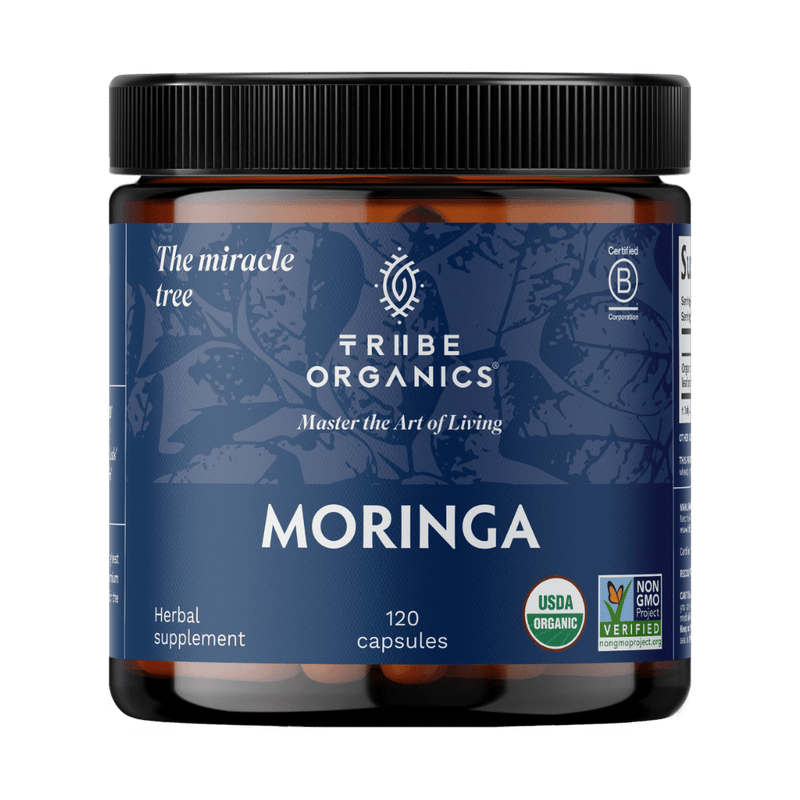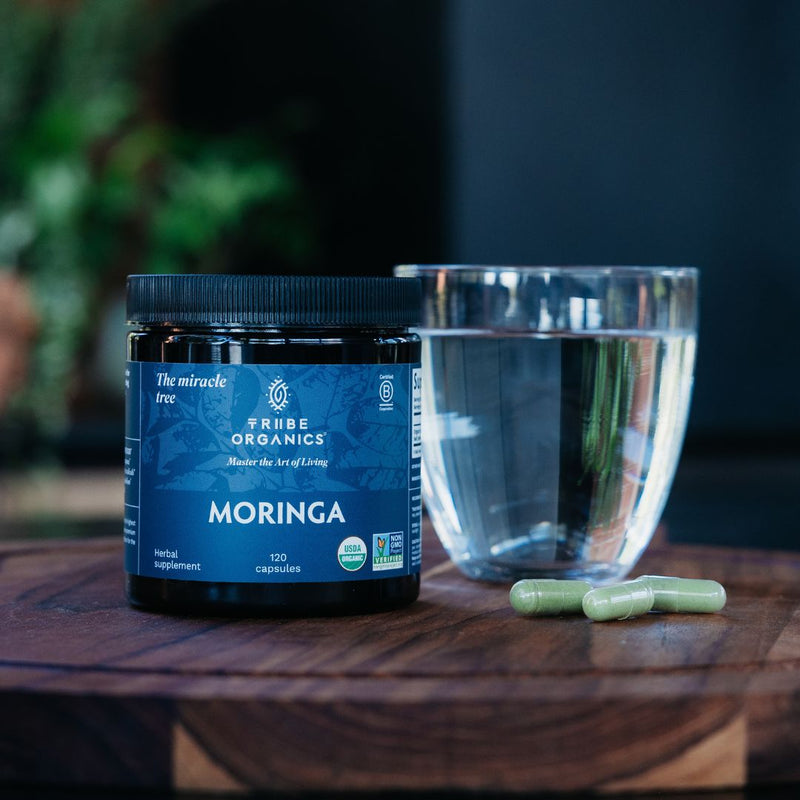Key Takeaways
- Ashwagandha root extract significantly improves multiple aspects of female sexual function including arousal, lubrication, orgasm, and overall satisfaction according to clinical trials
- Women taking 300mg of ashwagandha twice daily for 8 weeks showed marked improvements in Female Sexual Function Index (FSFI) scores compared to placebo groups
- The herb works by reducing cortisol levels, balancing reproductive hormones like FSH and LH, and improving blood flow to sexual organs
- Ashwagandha helps reduce sexual distress and anxiety while enhancing overall sexual well-being with minimal side effects when used properly
- Clinical trials demonstrate ashwagandha is particularly effective for women experiencing stress-related sexual dysfunction and hypoactive sexual desire disorder
Female sexual dysfunction affects up to 40% of women worldwide, yet many seek natural alternatives to pharmaceutical interventions that often come with significant side effects. Ashwagandha, an ancient adaptogenic herb from Ayurvedic medicine, has emerged as a promising natural solution backed by rigorous scientific research. Recent randomized double blind placebo controlled studies reveal that this powerful root extract can significantly improve sexual function, reduce sexually related personal distress, and enhance overall sexual wellness in women.

What is Ashwagandha and How Does it Benefit Female Sexual Health?
Ashwagandha (Withania somnifera), also known as Indian ginseng, is a cornerstone herb in Ayurvedic medicine that has been used for centuries to enhance vitality, reduce stress, and improve reproductive health. As an adaptogen, ashwagandha helps the body adapt to physical and emotional stressors while promoting hormonal balance and overall well being.
The prevalence of female sexual dysfunction encompasses various conditions including hypoactive sexual desire disorder, sexual arousal difficulties, orgasmic dysfunction, and sexual pain disorders. These sexual dysfunctions can significantly impact a woman’s quality of life, relationships, and mental health. Traditional approaches often focus on pharmaceutical interventions, but growing evidence supports alternative medicine approaches like ashwagandha for improving sexual function naturally.
Ashwagandha addresses multiple underlying causes of sexual dysfunction in women through its unique mechanisms. The herb works by modulating the stress response system, balancing reproductive hormones, improving sleep quality, and enhancing blood circulation to reproductive organs. Unlike single-target pharmaceutical approaches, ashwagandha’s multi-pathway effects make it particularly effective for women experiencing stress-related sexual difficulties.
Research demonstrates that ashwagandha can enhance sexual function by supporting the sexual response cycle at multiple stages. From increasing sexual desire and improving sexual arousal to facilitating orgasm and reducing sexual pain, this adaptogenic herb offers comprehensive support for female sexual health and sexual wellness.
Clinical Research Evidence on Ashwagandha for Women’s Sexual Health
The most compelling evidence for ashwagandha benefits for female sexually comes from rigorous clinical trials that employed standardized assessment tools and placebo controlled study designs. These studies provide robust scientific validation for the traditional uses of this remarkable herb in supporting women’s health.
A landmark randomized double blind placebo controlled study published in Biomed Research International examined 80 hormonally balanced premenopausal women diagnosed with hypoactive sexual desire disorder. Participants received either 300mg of standardized ashwagandha root extract twice daily or placebo for eight weeks. All the subjects were assessed using the Female Sexual Function Index (FSFI) and Female Sexual Distress Scale at baseline, week 4, and week 8.
The results were remarkable. Women taking ashwagandha showed significant improvements across all domains of sexual function. FSFI scores improved from a baseline mean of 14.20 to 22.62 at week 8 in the ashwagandha group, while the placebo group showed only modest changes from 14.17 to 19.25. The statistical significance (p<0.0001) demonstrated that these improvements were far beyond what could be attributed to chance.
Another significant pilot study involving 62 healthy women aged 18-50 examined the effects of 600mg daily ashwagandha supplementation. This research confirmed positive impacts on sexual arousal, lubrication, and frequency of satisfying sexual encounters compared to controls. The study utilized KSM-66, a high-concentration ashwagandha root extract that has become the gold standard for clinical research.
Importantly, these clinical trials employed written informed consent protocols and rigorous methodology to ensure reliable results. The consistency of positive outcomes across multiple studies strengthens the evidence base for ashwagandha’s role in improving sexual function and supporting female sexual health.

Specific Sexual Benefits of Ashwagandha for Women
The clinical research reveals that ashwagandha supplementation produces measurable improvements across six key domains of female sexual function as assessed by validated instruments like the Female Sexual Function Index. These benefits extend beyond simple libido enhancement to encompass the full spectrum of sexual wellness.
Enhanced Sexual Arousal and Lubrication
Studies demonstrate significant improvements in sexual arousal domain scores at both weeks 4 and 8 of ashwagandha supplementation. Women reported enhanced responsiveness to sexual stimuli and improved ability to become sexually aroused during intimate moments. This enhanced arousal appears linked to ashwagandha’s ability to improve blood flow to genital tissues and reduce performance anxiety.
Natural lubrication also showed marked improvement in clinical trials. Enhanced lubrication occurs through multiple mechanisms including improved circulation to vaginal tissues, hormonal optimization that supports healthy vaginal environment, and stress reduction that allows for natural sexual responses. The placebo group showed minimal changes in these parameters, highlighting the specific effects of the ashwagandha root extract.
The herb’s vasodilatory properties contribute to improved sensitivity and physical responsiveness during sexual activity. Women taking ashwagandha reported feeling more connected to their bodies and experiencing heightened physical sensations during sexual encounters.
Improved Orgasm and Sexual Satisfaction
Clinical evidence reveals significant enhancement in orgasmic function among women taking ashwagandha supplements. Participants reported increased frequency and intensity of orgasms, along with improved ability to reach climax during sexual activities. These improvements correlated strongly with reduced anxiety levels and enhanced overall sexual confidence.
Sexual satisfaction scores showed substantial improvement in the ashwagandha group compared to placebo. This comprehensive measure encompasses not only physical aspects of sexual experience but also emotional and relational satisfaction with sexual life. The herb’s stress-reducing properties appear crucial for this improvement, as chronic stress is a major barrier to sexual satisfaction.
The connection between mental well being and sexual response became evident in these studies. Women taking ashwagandha reported feeling more present during intimate moments and experiencing greater emotional connection with their partners during sexual intercourse.
Reduction in Sexual Pain and Discomfort
Evidence suggests ashwagandha supplementation may help reduce dyspareunia (painful intercourse) through its anti inflammatory properties and muscle-relaxing effects. While this area requires further research, preliminary data indicates improvements in the pain domain of the FSFI among study participants.
The herb’s anti inflammatory effects may contribute to reduced vulvar and vaginal irritation that can interfere with comfortable sexual activity. Additionally, ashwagandha’s stress-reducing properties help relax pelvic floor muscles, potentially reducing tension-related sexual pain.
Women reported decreased discomfort during sexual activities and improved ability to engage in various sexual positions and behaviors. This reduction in sexual dysfunction related to pain significantly enhanced overall sexual wellness and relationship satisfaction.
Decreased Sexual Distress and Anxiety
Perhaps one of the most significant benefits observed in clinical trials was the substantial improvement in Female Sexual Distress Scale scores. Women taking ashwagandha experienced marked reduction in sexually related personal distress, performance anxiety, and worry about sexual function.
The herb’s proven ability to reduce stress hormone cortisol levels by up to 30% directly impacts sexual anxiety and performance concerns. Lower cortisol levels correlate with improved mood, enhanced confidence, and reduced worry about sexual performance. This creates a positive cycle where reduced anxiety leads to better sexual experiences, which further reduces sexual distress.
Participants reported enhanced sexual self-esteem and greater willingness to initiate sexual activities. The stress reduction benefits extended beyond the bedroom, with women experiencing improved overall mental health and better sleep quality that indirectly supported their sexual wellness.

How Ashwagandha Works to Improve Female Sexual Function
Understanding ashwagandha’s mechanisms of action reveals why this adaptogenic herb is so effective for enhancing female sexual function. The herb works through multiple interconnected pathways that address both the physical and psychological aspects of sexual health.
Hormonal Regulation and Balance
Ashwagandha exerts significant effects on the hypothalamic-pituitary-gonadal axis, which governs reproductive hormone production. Clinical studies demonstrate that supplementation can help balance hormones crucial for sexual function, including luteinizing hormone (LH), follicle-stimulating hormone (FSH), and reproductive steroids.
In menopausal women, ashwagandha supplementation has been associated with increased estradiol levels and decreased FSH and LH, potentially helping alleviate hormonal imbalances that contribute to sexual dysfunction. The herb also supports healthy testosterone levels in women, which is essential for maintaining sexual desire and arousal capacity.
Ashwagandha helps regulate prolactin levels, preventing the excessive elevation that can suppress libido. Additionally, the herb supports thyroid function, which plays a crucial role in maintaining energy levels, mood, and sexual interest. This comprehensive hormonal support creates a healthy reproductive environment conducive to optimal sexual function.
The herb’s effects on hormone levels appear to stabilize over time, suggesting that consistent supplementation may provide sustained benefits for women’s health and reproductive function.
Stress and Cortisol Reduction
One of ashwagandha’s most well-documented effects is its ability to significantly reduce stress hormone cortisol levels. Elevated cortisol from chronic stress is a major contributor to sexual dysfunction, as it suppresses reproductive hormone production and interferes with sexual desire and arousal.
Studies show that ashwagandha can reduce cortisol levels by up to 30%, leading to improved stress resilience and better adaptation to daily stressors. This stress reduction has cascading benefits for sexual health, including improved mood, enhanced sleep quality, and reduced anxiety that often interferes with sexual experiences.
The herb’s impact on sleep quality is particularly relevant for sexual wellness. Poor sleep disrupts hormone production and increases stress levels, creating a cycle that undermines sexual function. By improving sleep quality, ashwagandha supports the natural hormone rhythms essential for healthy sexual desire and response.
Reduced stress also improves overall mental well being, which is intimately connected to sexual health. Women report feeling more relaxed, confident, and present in their bodies when taking ashwagandha, all of which contribute to enhanced sexual experiences.
Improved Blood Flow and Physical Response
Ashwagandha’s vasodilatory effects contribute to improved circulation throughout the body, including to reproductive organs. Enhanced blood flow to genital tissues supports natural lubrication, increases sensitivity, and facilitates the physical responses necessary for sexual arousal and satisfaction.
The herb’s antioxidant properties help protect the cardiovascular system and maintain healthy blood vessel function. This systemic support for circulatory health benefits sexual function by ensuring adequate blood flow during sexual activity and supporting the engorgement necessary for optimal sexual response.
Anti inflammatory effects also play a role in maintaining healthy reproductive tissues. Chronic inflammation can interfere with sexual function and comfort, so ashwagandha’s ability to reduce systemic inflammation may contribute to improved sexual experiences and reduced discomfort.
The combination of improved circulation, reduced inflammation, and enhanced tissue health creates an optimal physiological environment for sexual function and pleasure.
Optimal Dosage and Usage Guidelines for Sexual Benefits
Based on clinical research, the most effective dosing protocols for improving sexual function involve standardized ashwagandha root extract standardized to contain a minimum of 5% withanolides, the herb’s active compounds. The majority of successful studies used KSM-66 or similar high-quality extracts that provide consistent potency and bioavailability.
The clinically studied dosage that produced significant improvements in female sexual function is 300mg twice daily, typically taken with meals to enhance absorption and minimize any potential digestive upset. Some studies successfully used 600mg daily as a single dose, suggesting flexibility in dosing schedules to accommodate individual preferences and lifestyles.
Timing considerations can enhance effectiveness for some women. While the herb provides cumulative benefits with regular use, some practitioners recommend taking ashwagandha 1-2 hours before anticipated sexual activity to potentially enhance acute effects on arousal and responsiveness.
Duration of supplementation appears crucial for optimal benefits. The landmark clinical trials showed progressive improvements over 8 weeks, with the most significant changes occurring by week 8. This suggests that consistent daily use for at least 2 months is necessary to experience the full range of sexual health benefits.
Individual variation in response is common with herbal supplements. Some women may notice improvements in sleep quality and stress levels within the first few weeks, while sexual function benefits may take longer to manifest. Factors such as baseline stress levels, overall health status, and hormonal status can influence response timing and magnitude.
Healthcare provider consultation is essential for determining the most appropriate dosage and ensuring safe use, particularly for women with underlying health conditions or those taking other medications that might interact with ashwagandha supplements.

Safety Profile and Potential Side Effects
Ashwagandha demonstrates an excellent safety profile in clinical trials, with research showing zero reported adverse events in studies focusing on female sexual function. This safety record makes it an attractive alternative to pharmaceutical approaches that often carry significant side effect burdens.
The herb has Generally Recognized as Safe (GRAS) status for short-term use in healthy adults. Most clinical trials lasting 8-12 weeks report no serious adverse effects, and participants tolerate the supplement well when using standardized extracts at recommended dosages.
Rare potential side effects may include mild digestive upset in sensitive individuals, particularly when taking supplements on an empty stomach. Some women may experience drowsiness, especially when first beginning supplementation, as the herb’s stress-reducing effects can promote relaxation and better sleep.
Important contraindications exist for certain populations. Pregnant and breastfeeding women should avoid ashwagandha supplementation due to limited safety data in these groups. Women with autoimmune conditions such as rheumatoid arthritis, lupus, or multiple sclerosis should consult healthcare providers before use, as adaptogens may potentially stimulate immune system activity.
Drug interactions require attention, particularly with medications for diabetes, blood pressure, or sedative drugs. Ashwagandha may enhance the effects of these medications, potentially requiring dosage adjustments under medical supervision. Women taking thyroid medications should also monitor their levels closely, as ashwagandha can influence thyroid function.
The recommendation to start with lower doses and gradually increase allows individuals to assess their tolerance and adjust accordingly. Most practitioners suggest beginning with 150mg twice daily for the first week before progressing to the full clinical dose.
Discontinuation should occur if any unusual symptoms develop, and women should consult healthcare providers if they experience any concerns while taking ashwagandha for sexual wellness purposes.
Frequently Asked Questions
Shop best sellers
Explore our collection of favorite items that have gained popularity for their quality and satisfaction.

